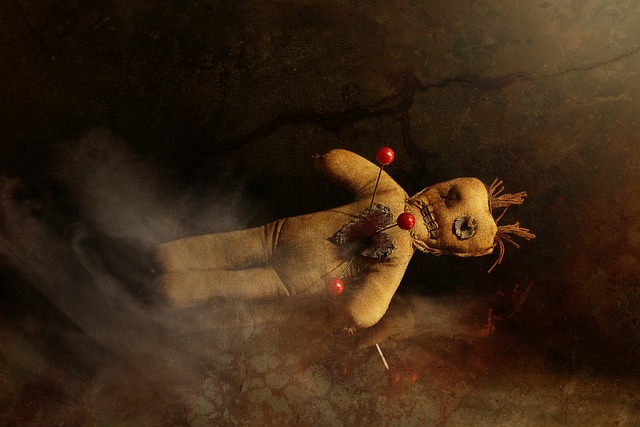Voodoo, also known as Vodou or Vodun, is a spiritual practice that originated in West Africa and is now mostly associated with Haiti. It is a syncretic religion that combines elements of various African religions with Catholicism. In Voodoo practices, the role of the voodoo priestess and priest is crucial. They are considered the spiritual leaders and intermediaries between the physical and the spiritual realms.
Connection with the Spirits
The voodoo priestess and priest are believed to have a special connection with the spirits, also known as loa, lwa, or lwa. These spirits are the deities or energies that voodoo practitioners communicate with and seek guidance from. The priestess and priest serve as the mediators between the human world and the spirit world, interpreting the messages of the spirits and relaying them to the community.
Initiation and Training
Becoming a voodoo priestess or priest is a lifelong commitment that requires rigorous training and initiation. The initiation process involves undergoing certain rituals, ceremonies, and tests that prove the individual’s worthiness and ability to connect with the spirits. Each voodoo tradition and sect may have its own specific initiation process, but in general, it involves learning the rituals, prayers, songs, dances, and symbols associated with voodoo practices.
Healing and Divination
One of the primary roles of the voodoo priestess and priest is to facilitate healing and divination. They have deep knowledge of herbal remedies and traditional healing techniques that are used to diagnose and treat illnesses. Through the guidance of the spirits, they can identify the root causes of diseases and offer solutions to restore balance and harmony in the affected individuals.
Divination is another important aspect of voodoo practices. The priestess and priest use various tools such as tarot cards, cowrie shells, bones, or other objects to communicate with the spirits and gain insights into the past, present, and future. They interpret the signs and symbols provided by the spirits to provide guidance to individuals seeking answers to their questions or seeking solutions to their problems.
Community Leadership and Rituals
The voodoo priestess and priest play a crucial role in leading the voodoo community and organizing rituals and ceremonies. They are responsible for ensuring that the religious traditions and customs are practiced correctly and that the community remains connected to the spirits. They lead communal celebrations, such as the Haitian voodoo music and dance gatherings called “mizik rasin,” where participants invoke the spirits through drumming, singing, and dancing.
Protection and Spiritual Cleansing
Another role of the voodoo priestess and priest is to provide protection and spiritual cleansing. They are often sought out by individuals who believe they are afflicted by negative energies, curses, or evil spirits. Through special rituals and prayers, the priestess and priest cleanse the individual’s spirit and provide a sense of safety and protection.
Spellcasting and Magic
Voodoo practices also involve spellcasting and magic. The voodoo priestess and priest have the knowledge and abilities to harness the energies of the spirits to cast spells for various purposes, such as love, fertility, prosperity, or protection. However, it is important to note that not all voodoo practitioners engage in spellcasting or magic, and it is not the main focus of the voodoo religion.
Social and Political Guidance
In addition to their spiritual roles, voodoo priestesses and priests also serve as social and political leaders in their communities. They provide guidance and counsel on important matters, such as disputes or conflicts within the community. Their wisdom and insight are highly respected, and their decisions often hold great weight.
In conclusion, the voodoo priestess and priest play multifaceted roles in voodoo practices. They are the mediators between the physical and spiritual realms, connecting the community with the spirits. Through their healing abilities, divination skills, protection, leadership, and guidance, they provide support and assistance to individuals seeking spiritual and practical solutions. Their role is crucial in maintaining the traditions and customs of voodoo and ensuring the well-being of the community.

